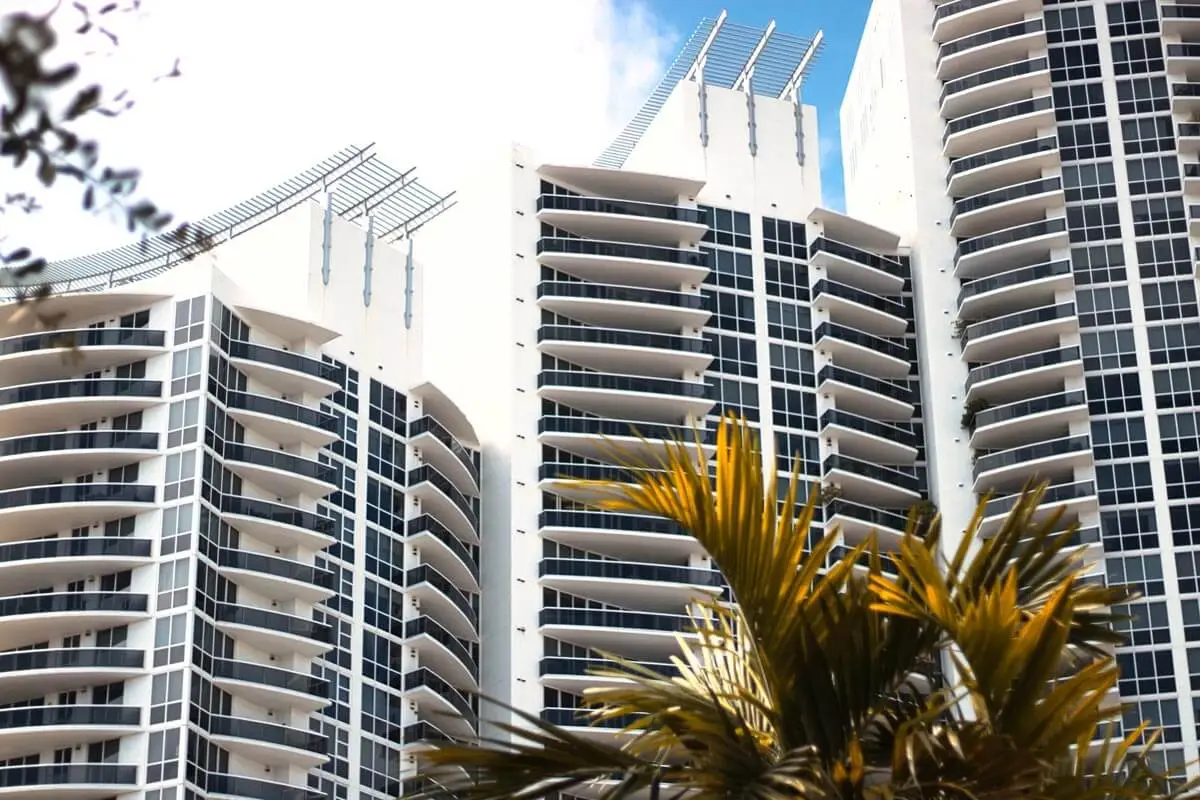It could be overwhelming if you are new in the investment scene. After all, there are many great investment options out there. One of the well-known investment choices is venturing into the real estate business in the Philippines as real estate investment has many benefits including high earning yields.
But as with all investments, you need to arm yourself with knowledge before you jump into one. To be able to manage your condo for rent, you have to allot time to join virtual real estate seminars, or simply read up on property investment tips for beginners.
Through this article, you can learn about an effective and trending way to venture into the real estate business: by creating a real estate investment trust (REIT) in the Philippines.
 Photo courtesy of Sung Jin Cho via Unsplash
Photo courtesy of Sung Jin Cho via Unsplash
What are REITs in the Philippines?
REITs are corporations that invest in real estate properties. These properties are not just simple properties; these are income-generating buildings which include offices, warehouses, hotels, and condos as smart investment properties.
In the midst of the pandemic, there is a booming market for REITs in the country. One could credit this booming market to the 2020 updated REIT law in the Philippines, which was first established in 2009. These updated guidelines earned more easy-to-access investment properties to both big and small investors, more taxation incentives such as VAT exemptions, and lower requirements.
 Photo courtesy of Shane via Unsplash
Photo courtesy of Shane via Unsplash
What are the benefits of REIT?
1. Stable income stream
One of the reasons why people are attracted to investing in REITs is that it yields a stable income stream. Properties such as condos, apartments, and warehouses are income-generating for a reason. These places will always be necessities as a home or a business structure for other industries.
In addition, REITs are also not limited to these structures. Other corporations that yield earnings from providing basic services such as electricity, water, internet, or medical care like hospitals can also be included in REITs. For this reason, REITs can provide a stable stream of income to the company, with 90% of that income being annually distributed to all REIT investors.
2. Operations transparency
REIT in the Philippines is a big win in transparency of operations. They follow the major stock exchange laws and regulations. For a beginner, it will be a huge plus to read up on the basic real estate laws in the Philippines. This way, you can easily assess if your REIT is in compliance with the simplest laws.
In addition, they are publicly listed and traded. This is another win on the side of the REIT investor, since this unique factor can help in operations reports and other regulatory processes that he or she can look into or take note of.
3. Liquidity of shares
As mentioned above, REITs follow the major stock exchange rules. In this regard, this simply means that REIT shares can be traded in stock exchange, allowing you to easily buy and sell shares without the hassle of direct buying and selling.
Selling or buying shares of real estate properties means more expenses, more time, and more effort. This reason may cause some investors to doubt the benefits of investing in totality, but fortunately, investing REITs prevent such skepticism. With REITs, you are on your way to become a millionaire in the real estate market.
4. Easier taxation treatment
With the help of better REIT guidelines in 2020, REIT in the Philippines is becoming an attractive investment prospect to both newbies and expert investors. Some of these amazing provisions include the 10% OFW tax exemption. This tax provision meant that OFW don’t need to pay the 10% dividend tax for seven years.
Another good provision is the value added tax or VAT exemption for transferring properties to an REIT company, with the requirement of exchanging stock shares. Other exciting taxation incentives for REITs also include the removal of income tax collectibles and the 50% documentary stamp tax.
5. Portfolio diversification
No wonder that REITs in the Philippines seem to endure even the pandemic’s losses. It is because REITs are good diversifications for any investment portfolio. They earn income from necessities, and also increase returns and reduce risks.
Even if the pandemic sent some stocks and other investment options in a downward trend, REITs remain strong because they have low correlations with the trends in other assets.
6. Long and enduring investment
REITs are already historically proven to withstand the changes of times. For one, condos in prime real estate locations in the Philippines will always thrive for different kinds of people. Prestigious universities, commercial spaces, tourist destinations, or simply relaxing spots will never run out of style for students and professionals.
Also, these real estate properties will continue to have a steady growth of income because of property appreciation in popular locations such as Manila City, Mandaluyong City, and Cebu City.
 Photo courtesy of Mimi Di Cianni via Unsplash
Photo courtesy of Mimi Di Cianni via Unsplash
Is there anything I need to know before investing in REITs?
REITs are like any other investment. You need to take into consideration some factors before plunging into this investment option. Here are some things that you can ponder on before you invest in any REIT in the Philippines.
1. Understand your REIT’s industry.
There are different kinds of companies that cater to necessities, which also means different kinds of REITs. So it is important that you understand what exactly is the industry that your REIT belongs to. Determine if your REIT is involved in medical services, utilities, commercial uses, residential properties, or storage purposes for food, books, and other necessities. Doing so will help you research your REIT’s industry trends, and assess the gains and losses for your REIT.
2. Assess your REIT’s quality.
Every REIT in the Philippines generates income from a necessity. But just because it does, you shouldn’t automatically think about higher yields. Check the quality of your REIT first. For example, if you have chosen a residential REIT, consider the location, the quality of the facilities, and the length of leases. These factors may affect your gains. Prime locations, excellent facilities, and months or years of leases may mean positive returns for you.
Make sure to check on your REIT’s corporate decisions. Do they develop new products, facilities, or projects? How is the customer growth over the years? These questions may give you an idea if your REIT’s revenue growth is going downward or upward.
3. Read your REIT’s disclosures.
As with anything that involves contracts and disclosures, you need to understand the disclosures of your REIT. Understand your REIT’s investments from its total assets to its non-real estate investments. You can check out company disclosures such as financial reports and major company announcements via the Philippine Stock Exchange website.
If you do not understand anything, it is best to ask investment professionals. Dedicate time to read more about real estate investment trusts before shelling out any valuable resource, whether it is your money or your time.
 Photo courtesy of Chris Liverani via Unsplash
Photo courtesy of Chris Liverani via Unsplash
How to invest in REIT in the Philippines?
If you have finally made up your mind, you can now try investing in a REIT. There are two common ways to help you start investing in a REIT in the Philippines.
1. Buying REITs through the Philippine Stock Exchange (PSE)
This first option enables you to purchase REIT shares through the PSE website, with the assistance of a broker.
- Make sure you have a trading account with a legit stock broker.
- Register through the Philippine Stock Exchange website (PSE Easy).
- Wait for the verification link sent via your email.
- Give permission to your broker to open a Name-on-Central Directory account for you. This account will be used for your REIT shares.
- Log in to your PSE Easy account, and start searching for initial public offerings (IPOs). These are the REIT shares that you can buy.
- Subscribe to your selected IPO.
- Read the IPO summary and payment instructions that will be sent to your email.
2. Buying REITs through a broker
This second option is for anyone who prefers to buy and sell REIT shares through a PSE-accredited broker. Check the list of PSE-accredited brokers via the PSE website.
- Open a stock brokerage account through your PSE-accredited broker.
- Consult and follow the broker's instructions to buy and sell shares through their trading platform.
- Buy shares in compliance with the required minimum number of shares on the board lot. For example, if the minimum number is 200, then make sure to purchase at least 200 shares.
Investing in REIT in the Philippines might seem like a daunting task. There is too much to consider and understand. One needs to remember that investments always need ample preparation not just in finances, but in understanding how the investment works. But by doing your research on REITs, you are one step closer to earning a positive return on your REIT investment.
Key Takeaways
In the Philippines, knowing the essentials of the real estate laws is of utmost priority. This will aid you in various situations, most importantly in your property ownership. The law protects both the buyer and the owner of the land or property, and as such, it is ideal to be knowledgeable of the existing real estate laws in the Philippines.
- Remember that a real estate investment trust is a company that owns, develops, and operates income-generating real estate properties. This means that they are in the business of buying, selling, and managing real estate properties.
- Generated income from real estate investment trusts are exempt from income tax. This is due to the fact that they are already taxed at the corporate level.
- Be mindful of the real estate investment trust's expenses. These are typically deducted from the income that they generate, which will then be distributed to the shareholders.
Now that you know the basics of REITs in the Philippines, you can start exploring this option as a potential source of income. With careful research and due diligence, you can find the right REIT that meets your investment goals and risk tolerance.
To learn more about DMCI Homes pre-selling and ready for occupancy projects, units for lease, and special promos, log on to www.dmcihomes.com or call (632) 5324-8888. You can also check out https://leasing.dmcihomes.com/ for currently available condos for rent.
For news and other updates, check out our social media accounts on Facebook, Twitter, Instagram, and YouTube.









